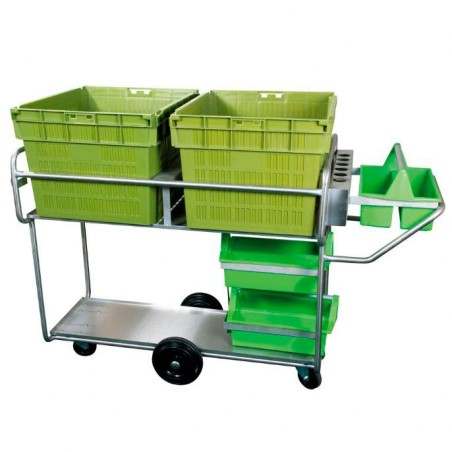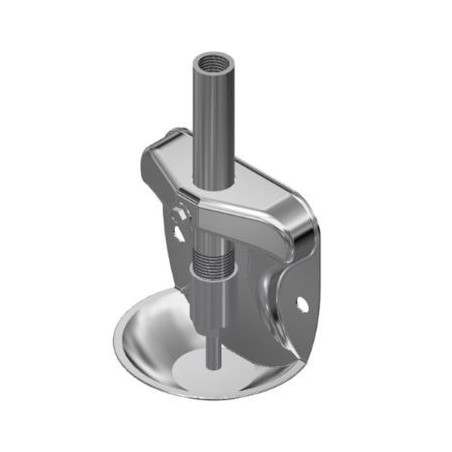In the urgent need to find alternatives to avoid the use of antibiotics in swine production, new strategies are being tested. Innovative compounds and feedstuff, like microalgae, are of interest for their prebiotic properties to cope with post-weaning stress. Furthermore, they don’t compete for land or other resources to produce food for human consumption, and they present beneficial environmental effects. Although microalgae have a high nutritive value, their recalcitrant cell wall makes them indigestible for monogastric animals. However, enzymes like carbohydrate-active enzymes might improve their utilization. Therefore, the purpose of this study was to evaluate the impact of Chlorella vulgaris (5% in the diet), supplemented or not with two exogenous carbohydrase mixtures on piglets’ performance, nutrient digestibility and gut morphology, fermentation products and microbiota. Forty-four male piglets weaned at 28 days of age, with 11.2 ± 0.46 kg of live weight, were used and assigned to 1 of 4 dietary treatments: cereal and soybean meal based-diet (control, n = 11), control diet with 5% of C. vulgaris (n = 10), C. vulgaris diet supplemented with 0.005% of Carbohydrase of reference (n = 10) and C. vulgaris diet supplemented with 0.01% of a recombinant 4-carbohydrase mixture (n = 11).
Growth performance was not changed by the of C. vulgaris inclusion during 21 days of trial. However, total tract apparent digestibility of nutritional fractions was negatively impacted by the inclusion. In contrast, dietary microalga increased duodenum villus height and promoted a healthier gut microbiota, with higher abundance of some specific bacterial taxa (Colidextribacter, Oscillospira and Lactobacillus).

This study indicates that the dietary inclusion of 5% C. vulgaris improves piglets’ gut health without impairing performance. Data also indicate that C. vulgaris reduces nutrient digestibility but promotes compensatory developments of gut mucosa and prebiotic effects. Dietary supplementation with exogenous carbohydrase does not seem to be necessary for this inclusion level. Therefore, the incorporation of C. vulgaris as a sustainable feed ingredient in piglets’ nutrition is a viable alternative approach.
Martins CF, Trevisi P, Coelho DF, Correa F, Ribeiro DM, Alfaia CM, Pinho M, Pestana JM, Mourato MP, Almeida AM, Fontes CMGA, Freire JPB, Prates JA. Influence of Chlorella vulgaris on growth, digestibility and gut morphology and microbiota of weaned piglet. Scientific Reports. 2022; 12(1), 1-12. https://doi.org/10.1038/s41598-022-10059-5






